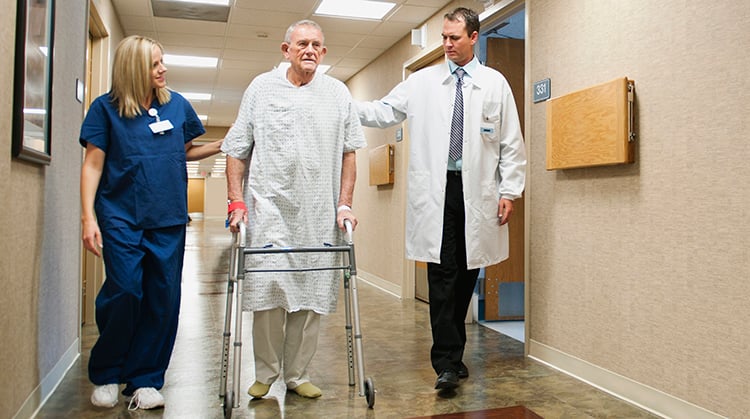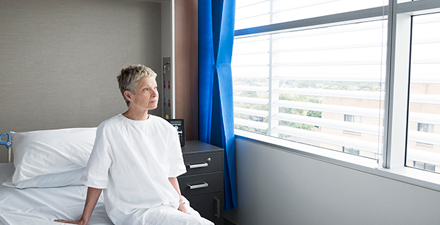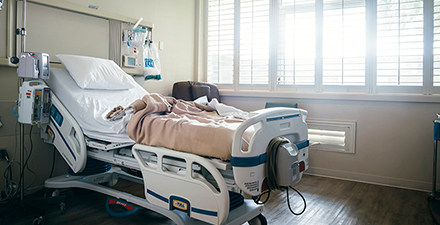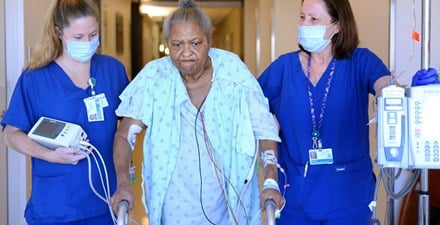
People in the hospital spend a lot of time in bed. Often too much time: one study found that hospital patients spend over 80% of their time in bed.
Bed rest may be unavoidable for some patients based on their condition, but it's harmful for most people.
Bed Rest Risks
While rest is an important part of the recovery process, bed rest also causes problems. People are healthier when they move.
Consider these effects of bed rest:
- Muscle mass decreases at a rate of 1.5%-2% per day.
- The risk of blood clots increases.
- A person's range of motion (the ability to move joints like knees, elbows, and shoulders) is likely to get worse.
Benefits of Movement
Getting out of bed and moving can reduce some of the downsides of bed rest.
Movement during a hospital stay, with a physical therapist or other health care provider nearby to help you if needed, also provides a safe space to test balance, strength, and coordination. Getting up and out of the bed during your hospital stay can better prepare you to move when you get home.
What You Should Do
If you or a loved one has a hospital stay, tell the medical staff about your desire to limit bed rest and:
- Ask your health care team to challenge you to do physical activities they think are safe. At first, this might be as simple as walking to the bathroom or standing beside your bed.
- Ask your health care team to schedule times for you to walk within the hospital, with assistance if needed.
- Try to increase your movement and decrease your bed rest each day during your stay.
How a Physical Therapist Can Help
Physical therapists are movement experts. They improve quality of life through hands-on care, patient education, and prescribed movement.
Physical therapists are often involved in helping patients improve mobility, recover from injury, and manage pain and other chronic conditions before, during, or after a hospital stay.
When you're in the hospital, ask for a physical therapist to help you get moving. This could include walking, practicing balance, learning to get in and out of bed and on and off the toilet, and eventually exercising. The goal is to make sure you leave the hospital strong enough to be able to take care of yourself when you return home.
Before being discharged, ask for a referral to a physical therapist if you are having mobility problems, decreased balance, difficulty walking, or any other movement-related problems. A physical therapist can work with you — in the hospital or an outpatient clinic — to help you restore function, improve strength, and maintain your independence so you can participate in the activities you enjoy. You can also use Find a PT to contact a physical therapist directly.


